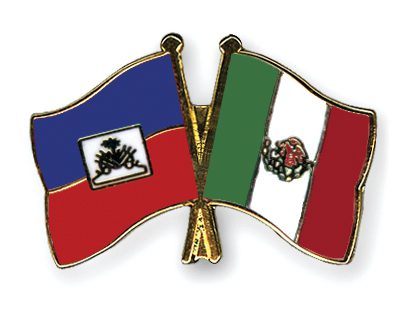Introduction
Haiti and Mexico
The difference is everywhere; you will not find two identical countries anywhere. The same goes for Mexico and Haiti and the Dominican Republic. The first thing we think about before the trip is the hotel. In the Dominican Republic, prices are lower. For example, for the money that you pay for a five-star in the Dominican Republic, in Mexico and Haiti you can book a good three rubles or a supported four.
In the Dominican Republic, there is no huge choice of excursions and their prices are not too high. This country has to passive rest. In Mexico and Haiti, the proposals for excursions are many, but their cost is very high, especially where it is associated with a trip to the mountains.
Songs (2010) found that in terms of entertainment, it makes no sense to even compare; here Mexico andHaiti is two or even three heads higher than the Dominican Republic. In Mexico State and Haiti, there is entertainment for every taste and color; it all depends solely on your financial capabilities. For a relaxing holiday and recreation with children is better suited Dominicana.
Smith (2001) stated that another, perhaps controversial, but the difference is security. We all hear that in Mexico State and Haiti, what kind of trouble often happens. Even in the reviews of tourists, there is often information that people have stolen a phone, money, or some expensive thing. In this case, it is not about some border areas, but in such a popular Mexican resort as Cancun. Dominicana is much calmer in all respects; there are not even poisonous insects and snakes.
The beaches are chic in both states. The difference lies in the nature and color of the sand. In the Dominican Republic, the sand is not so white, but the sea is much calmer, very rarely there are such waves that are found on the Mexican coast.
Another difference of the Dominican Republic is that due to the fact that in the country of a careful nature they belong to the hotel on the coast, they are located at a distance of 70-80 meters from each other.
It turns out that the Dominican Republic is better suited for a more relaxed and passive rest, and for active rest, it is better to go to Mexico and Haiti.
Literature Review (Haiti and Mexico)
The ISSA closely cooperates in the social field with a number of international organizations, primarily with the International Labor Organization, the United Nations Economic and Social Council, the World Health Organization, etc.
Amuedo-Dorantes, Georges & Pozo (201) researched that the ISSA General Assembly is actually the largest international forum in the social sphere (pp-224-244). It traditionally discusses the most pressing problems and promising directions for the development of national social systems, taking into account the changes occurring in the world associated with the processes of globalization and informatization, as well as the commercialization of social services.
Cravioto (2011) found that the sessions of the ISSA General Assembly are held every three years. On September 10-15, 2007, the 29th session of the GA ISSA was held in Moscow, called the “World Forum on Social Security”.
Among the issues put on the agenda of the forum, the priority was the role of social insurance in solving problems in the field of combating poverty and social injustice, expanding access to health care and pensions, as well as issues of social and economic costs in connection with disability. Also discussed were the tasks of improving administrative efficiency, current topical issues and trends in raw material welfare and their impact on national social and economic development.
Shorter & Macias (2012) found that within the framework of the forum, current problems and ways of solving a wide range of topical key issues were discussed, including(pp-172-177):
– current trends: the principles of dynamically developing social security
– positive experiences and new policies to combat child poverty
– health financing options
– ways to reduce unemployment
– ways to create a more reliable pension system
– social security in the Russian Federation
The main report of the ISSA “Developments and Trends: Supporting Dynamic Social Security”, presented at the 29th General Session of this organization, states that social security should play a key role in building an equitable and just society.
The report, based on the findings of a study of social programs carried out in Samoa, Namibia, Nepal, India, Bangladesh, Bolivia and Lesotho, states that even small amounts of social support paid to the most disadvantaged segments of the population of these countries have a positive effect on poverty reduction improving social climate and public health. The report also highlighted the challenges of aging the world’s population, combating poverty and developing the ore resource market.
Audefroy (2011) stated that Haiti and Mexico reaffirm its commitment to the right of peoples to self-determination, which is provided for in Article 1 of the ICESCR, through the creation of more favorable political conditions for their economic, social and cultural development.
Haiti and Mexico State willingness to adhere to this fundamental principle of the system international relations, aimed at ensuring peace and international cooperation, has repeatedly been confirmed in the position taken a country in the United Nations (UN) (pp-447-462).
Regarding the activities of the Haiti and Mexico government in the fight against discrimination, on 9 June 2003, a decree was issued on promulgation of the federal the law on the prevention and elimination of discrimination, which entered into force June 12, 2003.
In this law, discrimination is defined as “… any distinction, exclusion or restrictions based on signs of ethnic or national origin, gender, age, disability, social or economic status, condition health, pregnancy, language, religion, belief, sexual orientation, civil status or any other features that are intended to belittle or the destruction of the recognition or implementation on an equal basis of human rights and equal opportunity principle.
Songs (2010) found that the Anti-Discrimination Act in Haiti and Mexico provides, strengthens and systematizes Mexico and Haiti’s obligations under the above international legal frameworks acts. In addition, in accordance with this law, the National Council on the prevention of discrimination,
whose responsibilities include control over its use and the implementation of government policies to combat discrimination in order to implement and coordinate information, educational and outreach activities and other initiatives for combating discrimination and strengthening a mutually equal culture in society relations?
This decentralized federal government structure has own legal personality and own property and has autonomy in technical support and management; she does not obey anyone and accordingly, makes its decisions on claims or complaints in full independence.
In addition, the functions of this council are to promote cultural and social development of the country in the relevant field; undertaking initiatives in the legal sphere aimed at preventing and eradicating discrimination;
developing and promoting public policy to ensure compliance principle of equality of opportunity and treatment in the interests of persons on the territory of Haiti and Mexico; as well as in coordinating the activities of structures and bodies Federal Executive Authority for Prevention and Eradication discrimination.
Amuedo-Dorantes, Georges & Pozo (201) researched that the activities of the Commission are headed by a government committee, of which Representatives of government and civil society organizations and at the participation of the Advisory Council, which gives an opportunity to speak to those who struggle against social exclusion(pp-224-244).
In addition, the Board includes an advisory Assembly consisting of representatives from the private sector, the public and academic circles and performing the functions of an advisory and advisory body in the context of board-led initiatives, strategies, programs, and projects.
In addition to the above information on federal law under the prevention and elimination of discrimination should point to an innovative the nature of the two initiatives implemented in Haiti and Mexico State and Haiti is the first country in a world where, in peacetime,
a representative office of the Supreme United Nations Commissioner for Human Rights, as well as the first a country whose government has agreed to the United Nations conducted a nationwide study on the state of human rights in Haiti and Mexico.
Latané, Williams & Harkins (1979) found that in order to make concrete measures to protect and promote these rights, it was the draft “Legislative activity with a gender approach”, aimed at facilitating the drafting of a legislative agenda guaranteeing the implementation of the principles of equality and non-discrimination(pp-822). At the end of 2003 was four workshops were held:
one thing with the legislators of the federal congress and three more – with regional level legislators and legislators on equality and gender, operating in 27 local congresses of the 32 existing, in which representatives of government agencies for women’s affairs.
Conclusion
Cravioto (2011) found that It should be noted that in high demand within the social events enjoy information courses on rendering first medical assistance, improving the quality of nutrition, problems of sexual and reproductive adolescent health, activities in the section on “kachibola” and “tai chi-chuan”, aerobics classes, ballroom dancing courses, healthy lifestyle seminars Hairdressing courses and tailoring courses.
In addition, seminars are organized to discuss issues concerning nutrition, prevention of alcoholism and drug addiction, recreational gymnastics and the prevention of diseases and accidents. In addition, vaccination campaigns and adherence to the rules of personal hygiene. Among the promotional and informational events should be mentioned next: social welfare week, culture week, sports week and physical education, health initiatives, and organization of “wellness breaks”.
References
Song, S. (2010). Finding one’s place: Shifting ethnic identities of recent immigrant children from China,Haiti and Mexico in the United States. Ethnic and Racial Studies, 33(6), 1006-1031.
Amuedo-Dorantes, C., Georges, A., & Pozo, S. (2010). Migration, remittances, and children’s schooling in Haiti. The ANNALS of the American Academy of Political and Social Science, 630(1), 224-244.
Cravioto, A. (2011). Final report of the independent panel of experts on the cholera outbreak in Haiti.
Shorter, M., & Macias, D. J. (2012). Portable handheld ultrasound in austere environments: use in the Haiti disaster. Prehospital and disaster medicine, 27(2), 172-177.
Audefroy, J. F. (2011). Haiti: post-earthquake lessons learned from traditional construction. Environment and Urbanization, 23(2), 447-462.
Latané, B., Williams, K., & Harkins, S. (1979). Many hands make light the work: The causes and consequences of social loafing. Journal of personality and social psychology, 37(6), 822.
Smith, J. M. (2001). When the hands are many: Community organization and social change in rural Haiti. Cornell University Press.


